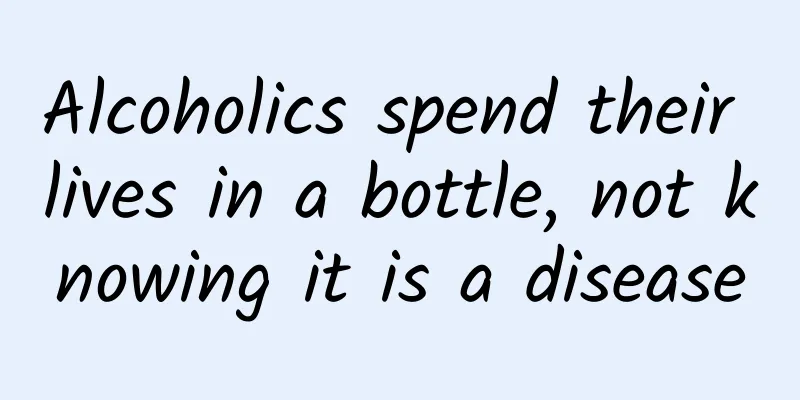Tap water, purified water, mineral water, which one is healthier?

|
Water is the source of life, but did you know that the water we drink every day actually has different "identities"? From boiled water to purified water to mineral water, each type of water has its own unique "character" and "skills". Today, let's talk about the differences between these common drinking waters and which one is healthier? Before I explain the science, let me tell you about my personal experience. A few days ago, my dad came back from outside with a bucket of purified water, as if he had discovered a new continent. He vowed, "We will use this for boiling water and cooking at home in the future! A new pure water machine has been installed downstairs in the community. 10L only costs one or two yuan, which is much better than tap water. Look at the tap water. After boiling, the kettle is full of scale. If you drink too much, you will get kidney stones!" When I heard this, I hurriedly explained to him, "Dad, don't be fooled by those rumors on the Internet! These scales are actually calcium and magnesium ion precipitations, and they will never accumulate into stones in our bodies." Chapter 1: The “identity card” of water - the essential differences among boiled water, purified water and mineral water 1. Boiled water: the crystallization of ancient wisdom When I was a kid, every time I came home from playing, my parents would always give me a cup of warm boiled water and say, "Drink some water to quench your thirst." Boiled water can be said to be the drinking water that has been with us for the longest time. Boiled water, in simple terms, is water that is boiled and cooled from tap water. Although its production process is simple, it has a long history and profound cultural background. Image source: Pixabay Advantages: Boiling can kill bacteria and viruses in the water, while removing some residual chlorine and retaining minerals such as calcium and magnesium in the water. Misconception: Many people think that tap water is “cheap but unhygienic”. When you see the thick scale on the inner wall and bottom of the kettle after boiling water, you may have concerns: Will drinking this stuff be harmful to your body? In fact, the “main drivers” behind this scale are calcium and magnesium ions. When tap water is heated, calcium and magnesium ions will generate insoluble substances such as calcium carbonate and magnesium hydroxide, which will adhere to the inner wall and bottom of the kettle to form scale. These precipitates are not only harmless, but also beneficial to some extent, because calcium and magnesium ions are essential elements for the human body and play an important role in promoting the development and growth of human bones [1]. The country has strict standards for indicators such as the hardness and heavy metal content of tap water. As long as the water quality meets the standards, boiled tap water is completely safe to drink from a health perspective. 2. Purified water: a minimalist created by technology If boiled water is the simple kid next door, then purified water is the "cleanliness freak" who pursues perfection. Purified water is usually made from water that meets the sanitary standards for drinking water. It is processed by distillation, deionization, ion exchange, reverse osmosis and other appropriate processing methods to remove minerals, organic components, harmful impurities and microorganisms in the water. It contains almost no impurities and has a purity of up to 99.9%. It is drinkable water without any additives (except ozone) [2]. It has a pure taste and extremely low conductivity. Advantages: Purified water contains almost no impurities and is suitable for occasions with high requirements on water quality, such as laboratories and medical equipment cleaning. Myth: Will long-term drinking of purified water lead to mineral deficiency? The World Health Organization (WHO) points out that as long as the diet is balanced, purified water will not have a negative impact on human health. However, if the diet is monotonous, it may aggravate the insufficient intake of minerals such as calcium and magnesium. Therefore, although purified water is good, don't drink it too much. 3. Mineral water: a gift from nature Mineral water is like a "treasure messenger" from deep underground. It is natural or artificially mined, unpolluted groundwater that contains a certain amount of mineral salts and trace elements[2]. Mineral water is rich in a variety of minerals and trace elements that are beneficial to the human body, such as calcium, magnesium, potassium, strontium, selenium, etc. These ingredients give mineral water a unique taste and potential health benefits. However, long-term and large-scale drinking of mineral water may put a burden on the kidneys and bladder[3]. Just like making them work overtime, they will also get tired. Advantages: The minerals in mineral water are beneficial to the human body and are especially suitable for replenishing electrolytes after exercise. Myth: Mineral water ≠ mineral water! The latter is water with artificially added minerals, while mineral water must meet national standards (such as strontium ≥ 0.2 mg/L). Chapter 2: Drinking water “multiple choice question” – how to match needs scientifically? 1. Daily drinking water: Boiled water is a sure win (1) Economical and safe. Tap water is supplied by municipal projects and has strict purification and disinfection procedures. After boiling, it can kill bacteria and effectively remove residual chlorine. It is simply an "all-round little guard". (2) Contains appropriate amounts of minerals. Tap water contains appropriate amounts of minerals, such as calcium, magnesium, iron, copper, chromium, manganese and other elements. Appropriate amounts are beneficial to human health. 2. Special demand scenarios (1) Hydration during exercise: Mineral water can replenish lost electrolytes (e.g. magnesium-containing water is the first choice for marathon runners after a race). (2) Brewing tea: “No trick is better than anything” with pure water – low mineral content makes the tea aroma purer (the secret of West Lake Longjing tea growers). (3) For infant formula: It is recommended to use natural water with low sodium and low mineral content (such as Nongfu Spring infant water, with sodium content ≤20mg/L). In summary, choose the water that suits you according to your needs. If you just want to quench your thirst, boiled water is the most cost-effective choice, economical and healthy. If you have high requirements for the taste of water and like to make drinks, purified water is a good match. For people who focus on nutritional supplements and hope to take in minerals by drinking water, mineral water is the best choice. Image source: Pixabay Chapter 3: How to keep water fresh – Improper storage = drinking bacteria? 1. Taboos on household water storage Household water pipes: Regularly check the water pipes in your home for rust and leakage, and replace them in time if necessary to prevent secondary water contamination. Bottled water: It is best to drink it within 10 days in autumn and winter and within 7 days in spring and summer after opening. Plastic bottles: Choose regular brands and reliable merchants. PET material releases microplastics when exposed to high temperatures and will deform when exceeding 70°C! Water dispenser: It is recommended to clean it every 3 months, otherwise bacteria and viruses will multiply in large numbers. 2. Commercial packaged water storage Temperature: The ideal storage temperature is 5℃-25℃. High temperature environment can easily promote the growth of microorganisms in the water, accelerate the aging of the materials of the packaging bottles or barrels, and may cause harmful substances to seep out; too low temperature may cause the water to freeze, expand in volume and burst the packaging. Light: Avoid direct strong light, especially ultraviolet light, which can cause algae to grow in the water and may also react with some substances in the water to produce photochemical reactions, changing the taste and quality of the water. Humidity: The humidity of the environment should not be too high. A humid environment is prone to mold growth, which can contaminate the outer packaging and threaten the internal water quality. If stored in a place with high humidity such as a basement, the outer packaging will mold and mold spores may penetrate tiny gaps and enter the water. Image source: Pixabay Conclusion: The ultimate philosophy of water - the most suitable is the best Choose the water that suits you, and it will benefit your health. No matter which water you choose, remember two golden rules: 1. Safety first: reliable water source and proper storage. 2. Healthy drinking: Develop a habit of drinking water regularly and ensure adequate water intake every day. Adults need 1500-1700 ml of water per day, divided into 8 times, with 200 ml each time being optimal. Adjust the amount of water you drink according to your personal activity level and climatic conditions[4] to avoid water intoxication caused by excessive drinking. Today, we have introduced the characteristics of different drinking water. Next time you pick up a cup of water, think about it: this cup of water may have passed through the strata, been purified by science and technology, or carried a thousand-year-old tea drinking culture - every drop of water is a wonderful symphony of science and nature! Only by insisting on scientific selection and healthy drinking in daily drinking can we "add fuel to our health", so don't make random choices! References: [1] Tao Chunai. A new perspective on drinking water safety: an in-depth analysis of scale and residual disinfectants[J]. Healthy Life, 2024(09):58-59. [2] Wang Huijie. Analysis of the current situation of urban drinking water in Zhoukou City[J]. Henan Water Conservancy and South-to-North Water Diversion, 2011(01):55-56. [3] Mineral water is not suitable for everyone [J]. Jilin Vegetables, 2012(01):18. [4] Dietary Guidelines for Chinese Residents (2022) Source: Zhongxian Center for Disease Control and Prevention Author: Hu Xulai, Chief Technician, Chongqing Zhongxian Center for Disease Control and Prevention Review expert: Yan Qiong, deputy chief physician, Chongqing Zhongxian Center for Disease Control and Prevention Statement: Except for original content and special notes, some pictures are from the Internet. They are not for commercial purposes and are only used as popular science materials. The copyright belongs to the original authors. If there is any infringement, please contact us to delete them. |
>>: Is arthritis caused by freezing?
Recommend
The dangers of menopause at 43
The 43-year-old woman is also facing the test of ...
Is breast 4b serious?
Breast category 4b is a relatively serious diseas...
How to eat healthy and not gain weight during pregnancy_How to eat nutritiously and not gain weight during pregnancy
After pregnancy, you not only have to take care o...
Why does a woman's menstrual flow decrease after she turns 40?
Small menstrual flow is an abnormal symptom. Unde...
What causes back pain before menstruation?
Nowadays, many women experience menstrual pain du...
How many types of vaginas are there?
For men, women's private parts are still very...
When is the safe period?
The seven days before menstruation and the eight ...
What is the "zombie deer" virus? ——What is "prion disease"?
What is prion disease? Recently, the United State...
Eater, do you know what you are eating?
When you open the shopping websites of JD.com and...
Various gynecological diseases
In fact, every woman has gynecological diseases t...
What are the effects of women's blood capsules
Women do not need to use Qi and blood capsules. I...
Is menopause a disease?
Menopause is a hurdle that every middle-aged woma...
Very little menstrual flow after medical abortion
Medical abortion is for women who are still in th...
Cold and cough that won’t go away? Learn about the nine respiratory tract items!
Cold and cough are one of the most common health ...
Will the amniotic fluid leak a little bit?
In the late stages of pregnancy, pregnant women n...









